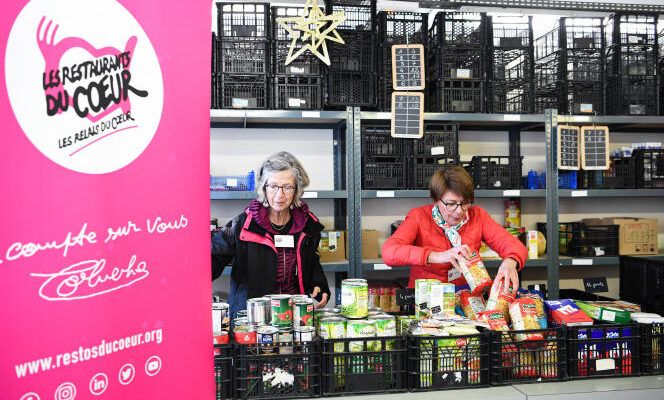For her thesis defended in 2019, the social anthropologist Bénédicte Bonzi regularly immersed herself for five years in the Restos du cœur of Seine-Saint-Denis. This researcher associated with the Laboratory of Anthropology of Institutions and Social Organizations of the EHESS drew the book Hungry France. The gift against food violence (Seuil, 448 p., €22), which articulates a valuable field survey with a structural critique of our food system.
Why did you want to take a “critical look” at food aid?
With the Restos du Coeur, Coluche’s initial project [1944-1986] was to give a one-time boost, not to be a long-term one. But the Restos, created in 1985, have become institutionalized to become, for 5.5 million French people each year, a way of eating. In our country, 8 million people resort to food aid and, with some 11 million fellow citizens living in poverty, according to Oxfam, we can estimate that around 3 million remain potentially without recourse.
The explosion in the number of beneficiaries makes it necessary to question this aid. Being well fed is a right, enshrined in the Universal Declaration of Human Rights, in the same way as being housed or cared for. However, it is endangered by a system in the hands of agribusiness, of productivism, which takes consumer farmers hostage, which excludes millions of people and reserves them unworthy food – in particular ultra-processed products known to be toxic to health.
Coluche’s original project to fight against poverty has thus become the link in an unequal chain. The 2010 agricultural modernization law formalized it as such, giving food aid a status and assigning it the role of possible outlet for agro-industry. The 2016 law against food waste has further increased this assignment of food aid as the dustbin of mass distribution, by setting up a system of agreements between supermarkets and associations which forces the latter to recover unsold items.
What does the notion of “food violence” cover, around which your work revolves?
My field work brought me face to face with a violent food system, which violates the right to food of millions of people but throws away 10 million tons of food every year. For the beneficiaries, this violence results in well-documented physical consequences – obesity, hypertension, anemia, dental problems – and psychological ones. Its effects are sneaky, because this violence is manifested by the repetition of small acts: shame, daily frustrations, submission to control over access to food. This creates a feeling of deep devaluation, which generates a cascading loss of rights, because the person gets used to no longer asserting them. And this violence is found upstream of the food system, in the agricultural environment, where many cannot live from their work.
You have 38.07% of this article left to read. The following is for subscribers only.
